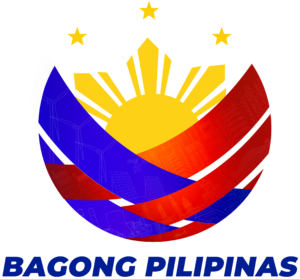by Diana A. Galang
It is common for Filipinos to look for someone to idolize –saints, politicians, artists, models, etc., somebody they will glorify and imitate. Since the time of the declaration of Philippine independence, 109 years ago, many were acknowledged as Filipino heroes, more so today, that every individual who become so popular or the main character in any particular event is given the title “hero”. The essence of the word “hero” is past declining, today one need not to die or do such gallant act to be given the noble title or that some just won a boxing match. Time has really evolved and so does our standard in defining a Filipino hero. Will our forefathers who gave their lives for freedom feel insulted for this? Are these the Filipinos we’ll look up to for guidance through the times, aren’t our children losing the true meaning of heroism by our doings? All these things we should ask ourselves before giving the title “hero” to anyone.
But what does being a hero mean? Dr. Esteban de Ocampo, a known historian, stated in his book about Rizal that a hero means a prominent or central personage taking an admirable part in any remarkable action or event; a person of distinguished valor or enterprise in danger, or fortitude in suffering; and a man honored after death by public worship because of exceptional service to mankind. The true heroes of Philippine history deserve to be called so for they didn’t have any idea that one day they will be measured up, they just acted upon their principles. The concept of honoring heroes came only to the Philippines in 1900, when the Philippine Commission (Pardo de Tavera, Legarda, Luzurriaga (Filipino members) and headed by William Howard Taft) approved Act No. 137 combining the districts of Morong and Manila to be named as “Province of Rizal,” in honor of the most illustrious Filipino. Actually, this Act was disputed by many but the basis of the Commission was so strong that it has surpassed the public’s questions.
Since then, heroes were celebrated here and there, citing their names in every politician’s speeches, declaring holidays, naming streets, constructing monuments, etc. in their honor. Until one day, realizing that so many names were acknowledged as heroes, need to evaluate the situation was proposed. During Marcos’ presidency, he tasked the National Heroes Commission to come up with the criteria for national hero. On March 28, 1993, thru the President’s Executive Order No. 75, the National Heroes Committee was created, commissioned to study, evaluate and recommend historical figures to be declared as national heroes. The Committee composed of worthy members, with a series of discussions came up with the new criteria.
The criteria is composed of 10 standards: First is the extent of a person’s sacrifices for the welfare of the country. Second, the motive and methods employed in the attainment of the ideal (was his ideal purely for the welfare of the country and without any taint of self-interested motives, most of all the method of attainment should be morally valid). The third is the moral character of the person concerned (the person should not have any immorality issue that affected his ideal). The fourth is the influence of the person concerned on his age and or the succeeding age. Fifth is that heroes are those who have a concept of nation and thereafter aspire and struggle for the nation’s freedom (they must have desired the country’s freedom in any situation especially when there’s a threat of invasion in any form). Sixth is that heroes are those who define and contribute to a system of life of freedom and order for a nation (one who helps in the orderliness and betterment of the country). Seventh is, heroes are those who contribute to the quality of life and destiny of a nation. Eight, a hero is part of the people’s expression (the citizen must have recognized and acknowledged the person as a hero). Ninth, a hero thinks of the future, especially the future generations, his concern for the future generations must be seen in his decisions and ideals). Lastly, the choice of a hero involves not only the recounting of an episode or events in history, but of the entire process that made this particular person a hero.
Filipino’s expectations of public figures are different now than it was more than a hundred years ago, maybe because of the realization that no one is perfect. This is the reason why today so many were acknowledged as heroes and many were voted in important governing positions with flaws and questionable characters. Lucky are those who aspire one day to be called a hero that the criteria was already set to pattern their decisions with. I hope that the criteria for national heroes will not only be checked against the historical figures but also with the politicians to whom we will entrust the power to govern our country.

